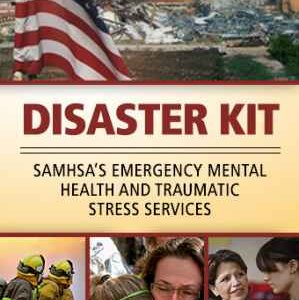For Healthcare Providers
Responding to the COVID-19 Pandemic: Toolkit for Emotional Coping for Healthcare Staff (TECHS)
FEATURED RESOURCE
The International Society for Traumatic Stress Studies (ITSTSS) has updated their Toolkit for Emotional Coping for Healthcare Staff (TECHS) slides (click here) and created a webinar (click here) that walks you through the toolkit.
Live Q&A Sessions on Monday, April 20th.
Session 1: 8 a.m. (U.S. Central) Register Now.
Session 2: 6 p.m. (U.S. Central) Register Now.
Example Practices and Templates

Seattle Harborview
COVID-19 Huddle Summary
Downloadable Resources

COVID-19 Medical Personnel Mental Health Resources: Quick Reference Guide V.1
Collated by behavioral health specialists from ASPR’s Eastern Great Lakes Pediatric Consortium for Disaster Response and the Western Region Alliance for Pediatric Emergency Management

Addressing mental health and psychosocial aspects of COVID-19 Outbreak (Version 1.1)
The Inter-Agency Standing Committee (IASC) Reference group for Mental Health and Psychosocial Support in Emergency Settings

Center for the Study of Traumatic Stress
Caring for Patients’ Mental Well-Being During Coronavirus and Other Emerging Infectious Diseases: A Guide for Clinicians

Guidelines for Appropriate use of Telepsychology
From the Washington State Department of Health, Office of Health Professions and Facilities, Examining Board of Psychology
From the Literature: Recommended Reading
Recommended Links

